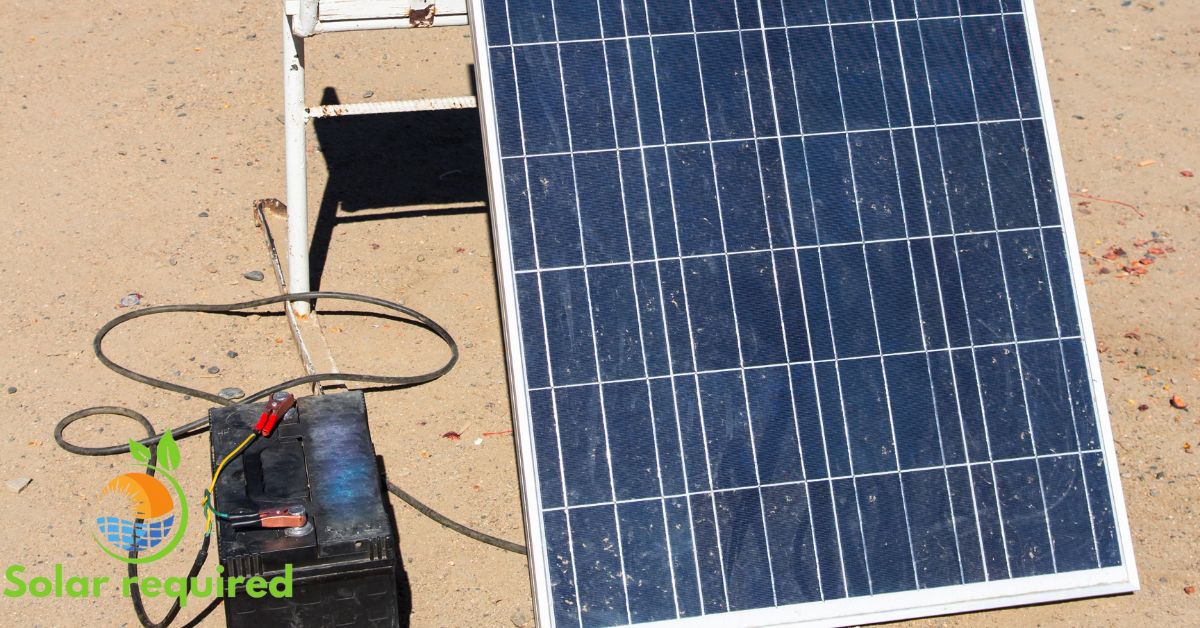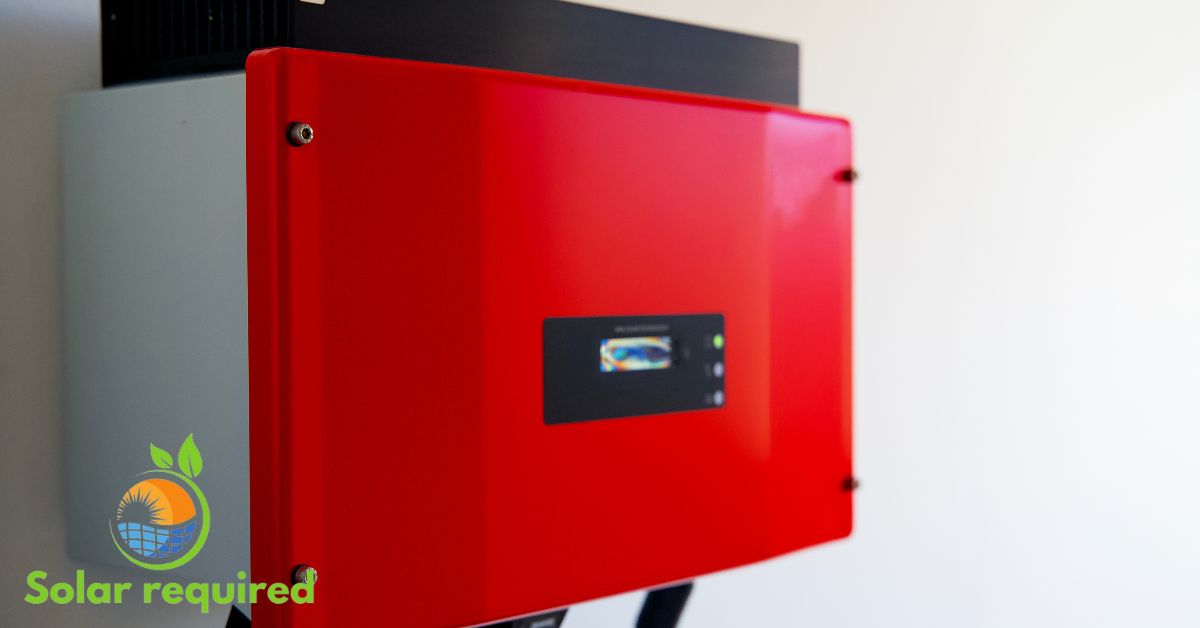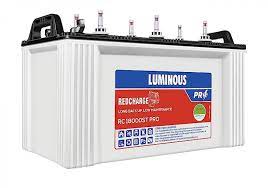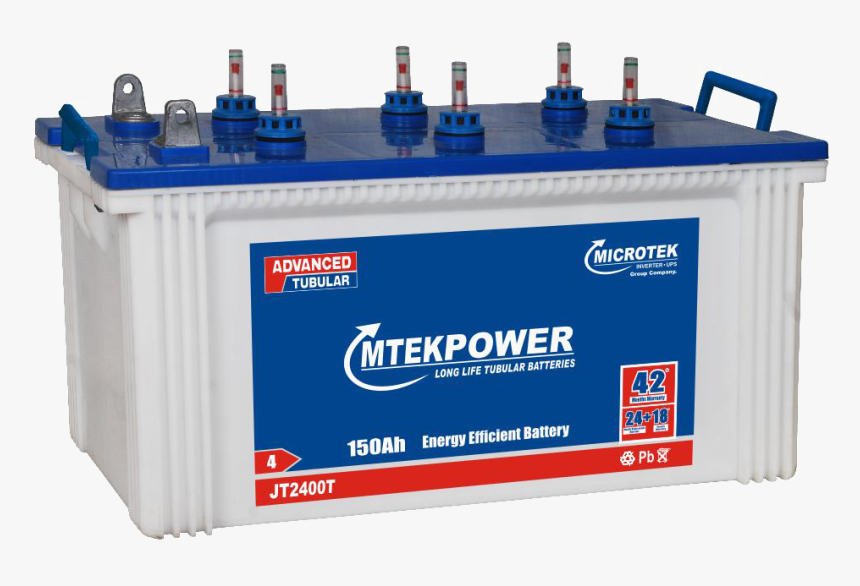Introduction to Solar Battery and Inverter Battery
When it comes to harnessing solar energy or ensuring an uninterrupted power supply during power cuts, two important components come to mind – solar and inverter batteries. While both serve to store electricity, they are designed for different applications.
In this article ”Difference Between Solar Battery and Inverter Battery” I will explain the key differences between solar and inverter batteries, their functionalities, and factors to consider when choosing the right battery for your needs.
Related: What Is DIN EN LN5 Battery? Explained Simply
Understanding the Purpose and Functionality of a Solar Battery

A solar battery, as the name suggests, is specifically designed to store the excess electricity generated by solar panels. During the day, when the sun is shining, the solar panels convert sunlight into electricity. This electricity can be used to power your home or business premises. However, there are times when the solar panels produce more electricity than you need. This excess electricity is stored in the solar battery for later use when the panels are not generating electricity, such as at night or on cloudy days.
Solar batteries are typically deep-cycle batteries, which means they can be discharged and recharged multiple times. They are built to withstand deep discharges and provide a consistent supply of power over an extended period. Additionally, solar batteries are designed to accommodate the intermittent nature of solar energy generation and store electricity efficiently.
Understanding the Purpose and Functionality of an Inverter Battery

On the other hand, an inverter battery is primarily used as a backup power source during power outages. When the utility power supply fails, the inverter battery takes over and provides electricity to your appliances and devices. Inverter batteries are usually connected to an inverter, which converts the stored DC power into AC power, making it suitable for running household appliances.
Inverter batteries are often lead-acid batteries known for their high energy density and ability to deliver a high surge of power when needed. These batteries are designed to provide a short burst of power during power cuts and are not intended for long-term storage of electricity like solar batteries.
Key Differences Between Solar and Inverter Batteries
The primary distinction between inverters and solar batteries is in their intended use and operational characteristics. Inverter batteries are used as backup power sources during blackouts, while solar batteries are particularly made to store surplus electricity produced by solar panels. While inverter batteries provide powerful short-term power bursts and are not meant for long-term storage, solar batteries are deep-cycle batteries that permit many discharges and recharges.
The charging mechanism is another significant distinction. Through the solar panels, which turn sunlight into power, solar batteries are charged. In contrast, inverter batteries are charged using the utility power source when it is accessible. This indicates that although inverter batteries depend on the grid for charging, solar batteries may be charged even when there is no grid electricity.
Factors to Consider When Choosing Between Solar and Inverter Batteries
Many considerations need to be made while choosing between an inverter and solar batteries. First, determine how much power you need. A solar battery would be the best option if your main goal is to store extra solar energy for use at a later time. On the other hand, an inverter battery might be more appropriate if you regularly have power outages and require a backup power source.
Capacity
Secondly, consider the capacity of the battery. The capacity is measured in ampere-hours (Ah) and determines how much electricity the battery can store. Calculate your average daily electricity consumption and choose a battery with sufficient capacity to meet your needs.
Cost and maintenance
Lastly, evaluate the cost and maintenance requirements. Solar batteries tend to be more expensive upfront, but can save you money in the long run by reducing your dependence on the grid. Inverter batteries are generally more affordable but may require regular maintenance to ensure optimal performance.
Pros of Using a Solar Battery
Pros:
- Reduced dependency on the grid and lower electricity bills.
- Environmentally friendly and sustainable energy storage.
- Ability to store excess solar energy for use during power outages.
- Long lifespan and low maintenance requirements.
Pros of Using an Inverter Battery

Pros:
- Provides backup power during power outages.
- Affordable upfront cost.
- Can be easily integrated with existing inverter systems.
- Suitable for areas with frequent power cuts.
Common Misconceptions About Batteries
Regarding solar and inverter batteries, there are a few misunderstandings that need to be cleared up. A common misperception is that solar batteries can replace the grid. Solar batteries can help you become less reliant on the grid, but they might not be able to sustain you during prolonged times of low sunshine or heavy electrical usage.
The idea that inverter batteries can store extra solar energy is another myth. In actuality, inverter batteries are mostly utilized as backup power sources during power outages and are not intended for long-term electrical storage. They cannot store the extra solar energy produced by the solar panels; instead, they must rely on the grid to charge them.

Examples of Popular Solar and Inverter Battery Brands
Top-quality solar and inverter batteries can be sourced from various trusted brands. Notable names in the solar battery market include Sonnen, LG Chem, and Tesla Powerwall. These manufacturers are celebrated for their innovative technology, durability, and efficiency in storing solar energy.
When it comes to inverter batteries, brands like Exide, Luminous, and Amaron are well-regarded. These brands offer a range of inverter batteries with different capacities to suit various power requirements.
Conclusion
In conclusion, solar batteries and inverter batteries serve different purposes and have distinct functionalities. Solar batteries are designed to store excess solar energy for later use, while inverter batteries provide backup power during power outages. When choosing the right battery for your needs, consider factors such as power requirements, battery capacity, cost, and maintenance requirements.
If you have a solar installation and want to reduce your dependency on the grid, a solar battery would be a suitable choice. On the other hand, if you frequently experience power cuts and need a backup power source, an inverter battery would be more appropriate. Evaluate the pros and cons of each type of battery and consider reputable brands that offer reliable products.
Recommendations for Choosing a Battery
Ultimately, the right battery choice will depend on your specific requirements and preferences. By understanding the differences between solar batteries and inverter batteries you can make an informed decision and ensure uninterrupted power supply or efficient storage of solar energy.